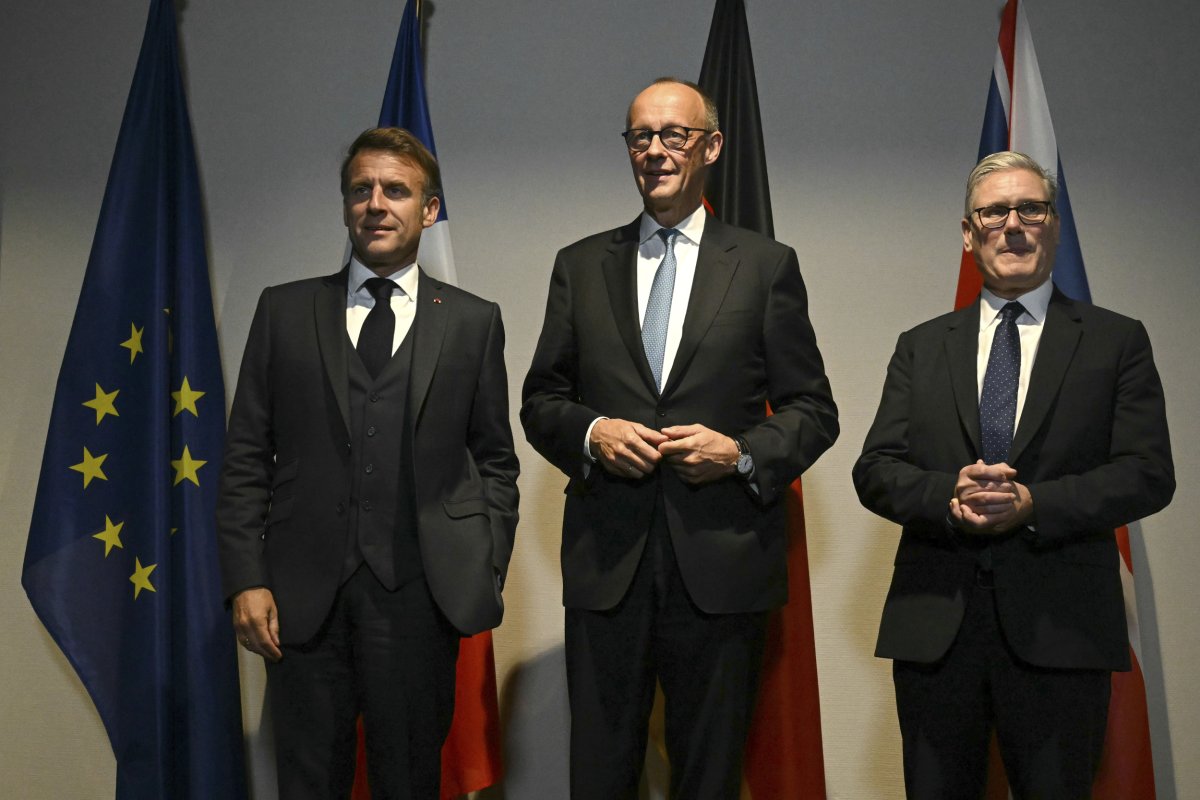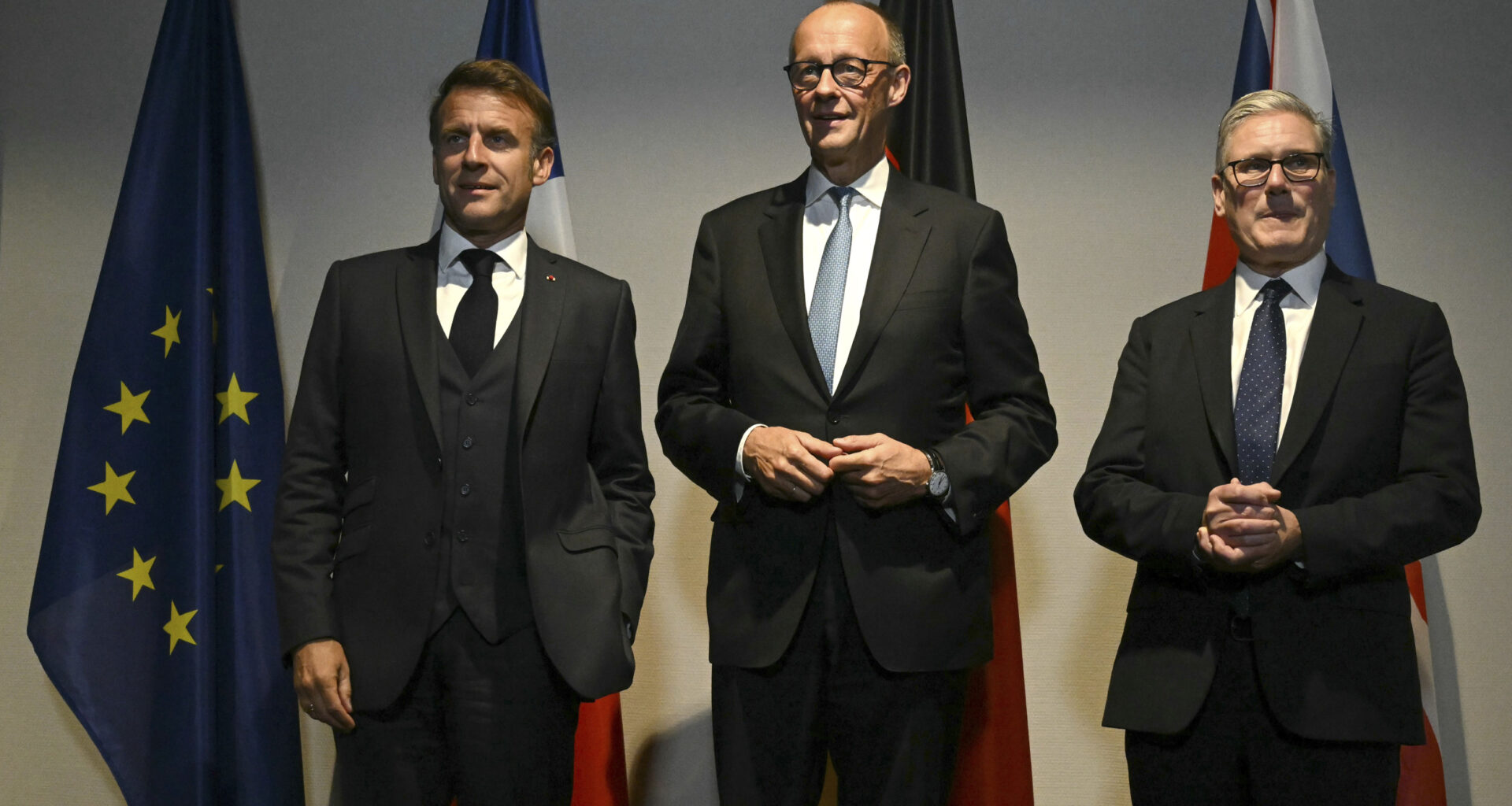Britain, France and Germany warned they are prepared to reimpose United Nations sanctions on Iran if the country fails to resume negotiations over its nuclear program and restore cooperation with the U.N.’s nuclear watchdog.
Tehran has increasingly restricted the International Atomic Energy Agency (IAEA) from accessing key nuclear facilities, using limited inspections as leverage in its standoff with the West. Following a June conflict with Israel that damaged nuclear-related sites, Iran suspended formal cooperation with the U.N. watchdog.
The IAEA’s most recent visit to the country did not include inspections of enrichment plants or other sensitive locations. Western officials say the restrictions have heightened concerns over Iran’s growing stockpile of highly enriched uranium and the opacity of its nuclear activities.
What is Iran’s Nuclear Program Deadline?
Iran’s deadline to resume cooperation with the IAEA and return to nuclear talks is August 31.
The three nations — known collectively as the E3 — delivered the warning in a letter to the U.N., dated Friday, which French Foreign Minister Jean-Nöel Barrot posted Wednesday on X. Co-signed by Barrot and his counterparts from Germany and the United Kingdom, the letter said the countries were ready to trigger the “snapback” mechanism, a process that allows any of the Western parties to restore sanctions if Iran violates the terms of the 2015 nuclear agreement.

French President Emmanuel Macron, Germany’s Chancellor Friedrich Merz and Prime Minister Sir Keir Starmer at a hotel prior to an E3 meeting on the sidelines of the NATO summit in The Hague, Netherlands. Picture date:…
French President Emmanuel Macron, Germany’s Chancellor Friedrich Merz and Prime Minister Sir Keir Starmer at a hotel prior to an E3 meeting on the sidelines of the NATO summit in The Hague, Netherlands. Picture date: Tuesday June 24, 2025.
More
Associated Press
“E3 have always committed to use all diplomatic tools at our disposal to ensure Iran does not develop a nuclear weapon,” the letter stated. “We have made clear that if Iran is not willing to reach a diplomatic solution before the end of August 2025, or does not seize the opportunity of an extension, E3 are prepared to trigger the snapback mechanism.”
Iran’s government did not immediately comment, but a senior lawmaker issued a stark warning. Manouchehr Mottaki, a former foreign minister who served for five years in the 2000s, said Tehran could quickly respond by quitting the Nuclear Non-proliferation Treaty (NPT) if sanctions are reinstated. “We only need 24 hours to approve quitting the nuclear deal,” he said, adding that parliament has a “finger on the trigger” for leaving the NPT, an international accord designed to prevent the spread of nuclear weapons.
The E3 letter follows months of diplomatic stalemate, particularly after a 12-day war between Iran and Israel in June. During that conflict, Israeli and American airstrikes targeted nuclear-related sites inside Iran. Last month, the E3 met with Iranian officials at Tehran’s consulate in Istanbul to discuss the potential reinstatement of sanctions. Those sanctions were lifted in 2015 in exchange for strict limits and monitoring of Iran’s nuclear activities.
Iran’s Foreign Ministry spokesman, Esmail Baghaei, said ahead of the Istanbul talks that he hoped the E3 would reconsider their “previous unconstructive attitude.” But since the June conflict, negotiations with Washington for a new nuclear deal have stalled, and Iran has cut ties with the International Atomic Energy Agency (IAEA). The U.N. watchdog’s first post-war visit to Iran on Monday did not include inspections of nuclear facilities, and cooperation remains suspended.
A diplomat familiar with the matter told The Associated Press that triggering the snapback mechanism would renew U.N. sanctions unless Iran restored full cooperation with the IAEA and addressed concerns about its stockpile of highly enriched uranium.
German Foreign Ministry spokesperson Josef Hinterseher said Wednesday the letter “once again underlines that the legal preconditions for snapback have long existed.” He added: “Our position and our appeal is, very clearly, that Iran still has the choice of deciding to return to diplomacy … and full cooperation with the IAEA.”
The IAEA and U.S. intelligence agencies have assessed that Iran halted its organized nuclear weapons program in 2003, but Tehran has recently enriched uranium to 60%, a short technical step from the 90% purity needed for weapons-grade material. The IAEA did not immediately respond to a request for comment.
What Countries Have Nuclear Weapons?
Nine countries are known to possess nuclear weapons: the United States, Russia, China, France, the United Kingdom, Pakistan, India, Israel, and North Korea. The first five are recognized as nuclear-armed states under the Nuclear Non-Proliferation Treaty (NPT), having developed their arsenals before the treaty’s 1968 cutoff. The U.S. and Russia hold the largest stockpiles by far, together accounting for more than 90% of the world’s nuclear warheads, while China, France, and the U.K. maintain significantly smaller but still formidable forces.
Outside the NPT framework, India and Pakistan developed nuclear weapons in the late 20th century, and North Korea declared itself a nuclear state in the early 2000s after withdrawing from the treaty. Israel has never officially confirmed its arsenal but is widely believed to maintain nuclear weapons under a policy of deliberate ambiguity. Several other nations, including Iran, are suspected of pursuing or having pursued nuclear weapons capabilities, but have not openly tested or declared them.
This article includes reporting by the Associated Press.
